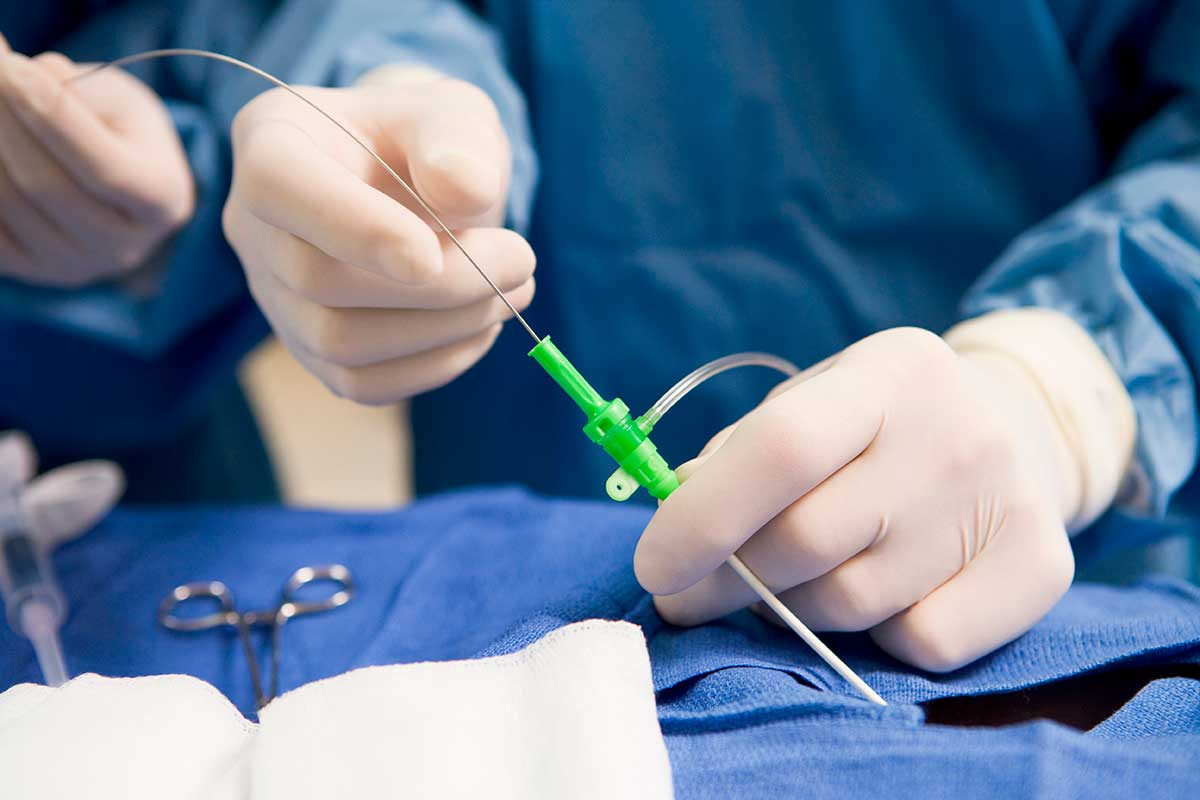Catheterization with Safety and Precision at Clinic Consultation in Surrey / BC
Clinic Consultation is a trusted provider of catheterization services in Surrey / BC, offering specialized and secure care for individuals seeking accurate diagnosis or treatment for heart conditions. Catheterization is a vital procedure used to evaluate heart and vascular health, identifying issues such as arterial blockages or cardiac function abnormalities. With experienced professionals and state-of-the-art technology, Clinic Consultation ensures reliable results and a compassionate approach to care.
Undergoing catheterization at Clinic Consultation in Surrey / BC is an excellent choice for those prioritizing quality and attention at every stage of the process. From the initial evaluation to post-exam follow-up, our specialists are dedicated to providing comprehensive support, guiding patients through the procedure, and ensuring maximum comfort and safety.
If you are in Surrey / BC and require catheterization, schedule an appointment at Clinic Consultation. We are committed to delivering top-tier care and support for your heart health. Don’t delay—trust Clinic Consultation for precise exams and exceptional service!
Catheterization is a minimally invasive medical procedure used to diagnose and treat cardiovascular and vascular conditions. During the process, a thin, flexible tube called a catheter is inserted into an artery or vein, usually in the wrist or groin, and guided to the heart or other areas of interest.
This procedure is one of the most precise methods for evaluating cardiovascular health. At Clinic Consultation, catheterization is performed by highly skilled specialists to ensure safety and reliable results.
What Is Catheterization Used For?
Catheterization is employed to identify cardiovascular problems such as blocked arteries, poor circulation, and congenital conditions. It can also assess the effectiveness of prior treatments, like surgeries or stent placements.
In some cases, catheterization serves as a treatment itself, enabling interventions such as Angioplasty, device placement, or tissue biopsies.
How Does Catheterization Work?
The procedure begins with the application of local anesthesia at the insertion site. Once the catheter is inserted, it is guided to the target area while real-time imaging, such as X-rays or Ultrasound, captures the process.
In certain cases, a contrast dye is injected to provide clearer views of arteries and blood vessels. Depending on its complexity, the procedure typically takes between 30 minutes and 2 hours.
Types of Catheterization
There are various types of catheterization tailored to specific medical needs:
- Diagnostic Cardiac Catheterization: Evaluates heart health and detects blockages in coronary arteries.
- Therapeutic Cardiac Catheterization: Used for interventions like angioplasty and stent placement.
- Pulmonary Catheterization: Measures pressure in the lungs and the right side of the heart.
- Renal Catheterization: Assesses blood vessels supplying the kidneys.
- Peripheral Vascular Catheterization: Examines arteries and veins in the extremities.
- Biopsy Catheterization: Collects tissue samples for analysis.
- Neurovascular Catheterization: Utilized in neurological diagnoses and treatments.
Diseases Detectable by Catheterization
Catheterization can identify a range of conditions, including:
- Coronary Artery Disease: Blockages or narrowing in the heart’s arteries.
- Myocardial Infarction: Assessing damage after a heart attack.
- Heart Failure: Identifying structural or functional causes.
- Congenital Heart Defects: Diagnosing abnormalities present since birth.
- Peripheral Arterial Disease: Circulatory issues in the limbs.
- Pulmonary Hypertension: Elevated pressure in pulmonary arteries.
- Aneurysms: Abnormal dilations in arteries.
When Is Catheterization Recommended?
Key situations where catheterization is indicated include:
- Chest Pain Diagnosis: To rule out arterial blockages.
- Heart Attack: Immediate evaluation for urgent treatment.
- Suspected Peripheral Arterial Disease: Investigating circulation issues.
- Post-Cardiac Surgery Assessment: Evaluating the success of previous treatments.
- Pulmonary Hypertension Evaluation: Confirming severity and causes.
- Congenital Heart Conditions: Diagnosing and planning corrective surgery.
- Pre-Surgical Planning: Risk assessment before cardiac procedures.
Pre- and Post-Catheterization Care
Before the procedure, fasting for 6 to 8 hours is typically required, along with blood tests and potential adjustments to medications.
Post-procedure care includes resting for at least 24 hours and monitoring the insertion site to prevent infection or bleeding.
Contraindications for Catheterization
Catheterization may not be suitable for individuals with:
- Active infections.
- Severe allergic reactions to contrast dye.
- Uncontrolled bleeding disorders.
- Advanced kidney disease.
Alternatives to Catheterization
For those unable to undergo catheterization, alternative diagnostic methods include cardiac CT scans, MRI, and vascular ultrasounds, which provide valuable insights into cardiovascular health.
Get Your Catheterization at Clinic Consultation
At Clinic Consultation, we offer advanced technology and a team of expert professionals to ensure safe and accurate catheterization procedures. Schedule your appointment today and prioritize your cardiovascular health.
